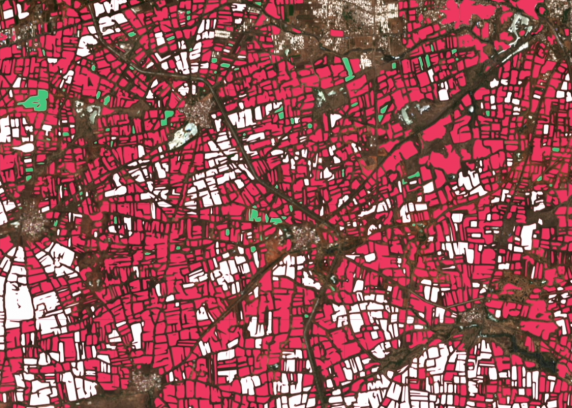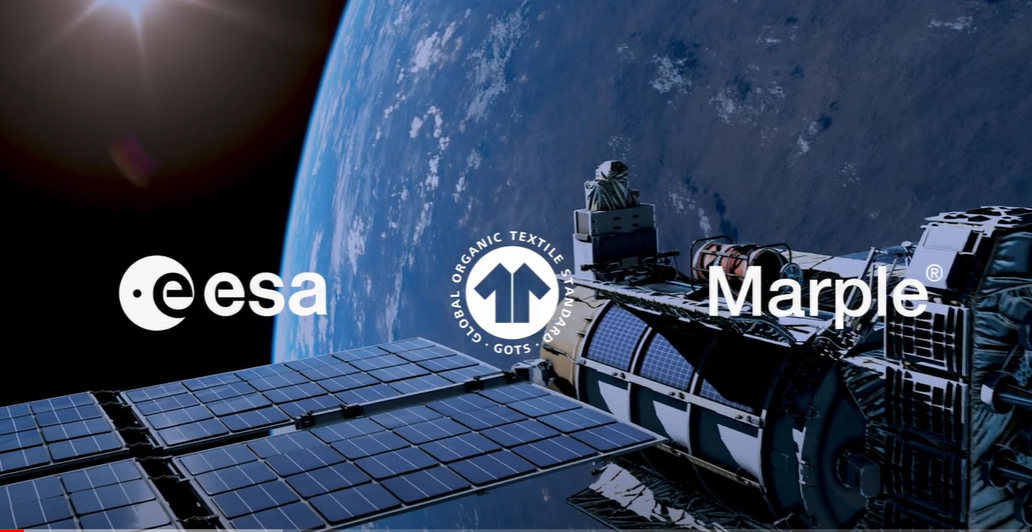
Windform composite materials at Satellite Innovation
Aiming to increase organic cotton integrity and availability.

17th September 2024
Innovation in Textiles
|
India
Global Organic Textile Standard (GOTS) and AI firm Marple have unveiled the results of their Satellite Cotton monitoring project in India, demonstrating a 97% accuracy rate in detecting cotton fields and over 80% accuracy in determining their organic status.
Co-financed by Global Standard, the non-profit behind GOTS, and Business Applications and Space Solutions (BASS) programme of the European Space Agency (ESA), the project leverages the Cotton Cultivation Remote Assessment (CoCuRA) software developed by Marple.
Field teams visited over 6,000 fields in India, across the states of Gujarat, Haryana, Madhya Pradesh and Maharashtra, collecting data on crops, soil types and cultivation status. This data was then used by Marple to refine the CoCuRA algorithm for cotton specifics in India. Once it was trained, the algorithm was applied to the entire agricultural area of India, covering 2.7 million square kilometres. Within seconds, CoCuRA detected all organic and conventional cotton fields with remarkable accuracy. A project of this magnitude is only possible with CoCuRA, with no other comparable project or data in existence.
The technology’s ability to pinpoint cotton fields where farmers use near-organic or uncertified organic methods can ensure a steady increase in certified organic cotton by facilitating the certification process.
“This technology identifies farmers who use sustainable methods that meet organic standards but lack certification,” explains Jeffrey Thimm, organic production specialist at Global Standard. “Integrating these farms into conversion projects boosts organic cotton supply, promotes sustainable farming practices and enables farmers to access premiums on their supplies.”

“For over 20 years, we have been pioneering solutions to help the industry on its journey towards sustainability,” adds Claudia Kersten, managing director of Global Standard. “This eye in the sky will prevent fraud by allowing us to crosscheck locations and field sizes in a very cost-efficient way. It’s a win-win-win situation – farmers have an incentive to grow organic and improve their lives, the industry can secure its supply and meet its sustainability goals, and consumers have a greater choice of organic textiles.”
Following the successful pilot in India, the project aims to expand globally.
“India faces unique challenges in the satellite-based detection of agricultural fields,” says Daniel Lanz, managing partner at Marple. “Firstly, the country is extremely large and spans several climate zones. Secondly, field sizes are very small, and thirdly, field boundaries are often indistinguishable, with one field merging into the next. Despite these challenges, CoCuRA has achieved astonishing accuracy in detecting cotton fields and assessing their cultivation methods. This breakthrough provides a pioneering overview of cotton production in India that would be impossible to achieve on the ground. CoCuRA will help protect the integrity of organic farmers and may facilitate more smallholders transitioning to organic farming by simplifying the certification process.”

Business intelligence for the fibre, textiles and apparel industries: technologies, innovations, markets, investments, trade policy, sourcing, strategy...
Find out more